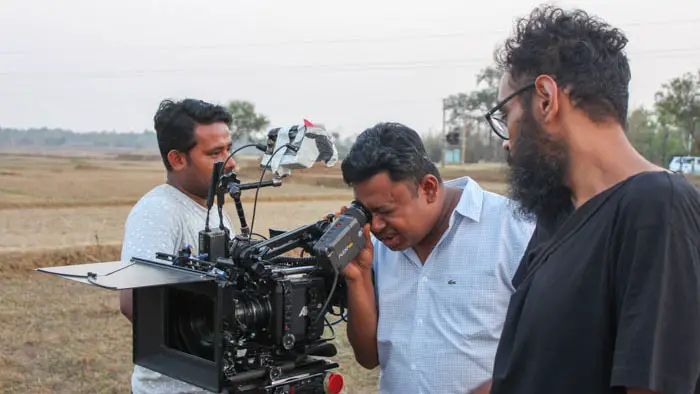Shiladitya Bora is the director of Bhagwan Bharose, a movie that explores the affect of religion and politics on the lives of two youngsters rising up in India within the Nineteen Eighties. The movie follows Bhola and Shambhu, who’re always challenged by their very own beliefs, their household values, and their social setting as they witness the turmoil and transformation of their nation. Bhagwan Bharose is a movie that portrays the lack of innocence and the search for which means in a fancy and altering world. We focus on the challenges of creating a film that challenges familial, non secular, and cultural norms throughout a time of nice turmoil.
Are you able to give us the essential story of Bhagwan Bharose?
Shiladitya Bora: Bhagwan Bharose is the story of two younger impressionable children residing in rural India within the late Nineteen Eighties. It’s the story of how numerous components like – upbringing, conventional training, mass media, and the local people might affect a toddler’s psychology and the way negligence and detrimental affect might result in catastrophic penalties. It chronicles the bittersweet and poignant coming of age of those two harmless children and their journey from blind religion to fanaticism and, lastly, the conclusion of its futility.
The story could be very private and intense. What real-life connections to this, or comparable, occasions do you have got? How did these experiences inform the route?
The primary problem is all the time to search out the correct story – one thing that I’m obsessed with on a private degree, one thing that has the potential to facilitate a dialogue between cultures and nations by cinema.

“…how…upbringing, conventional training, mass media, and the local people might affect a toddler’s psychology…”
For the previous few years, communal violence and intolerance have been on the rise in numerous elements of the world, claiming 1000’s of harmless lives and creating an setting of worry and persecution. A factor that has all the time intrigued me is, what causes such intolerance, what makes an individual flip right into a fanatic.
So when Sudhakar Neelmani, the author of the movie, narrated a number of private incidents on which the movie’s story is predicated, I felt a deep sense of affinity in direction of it and determined to take it up for my characteristic directorial debut. I’ve directed 3 brief movies previous to this characteristic, and after I look again, I can see a sample rising. I realised that I like telling tales that mirror essential problems with the world, portraying them in a simplistic method utilizing on a regular basis humour as a instrument, which might maintain the viewers engaged until the top. The most important worry I ever had was to not find yourself making a pretentious movie that I, personally am not a fan of.
I don’t have first-hand expertise of any such communal points and violent crimes, nonetheless, for numerous character traits of the actors, I’ve borrowed rather a lot from individuals I’ve recognized and issues I’ve noticed over time.


